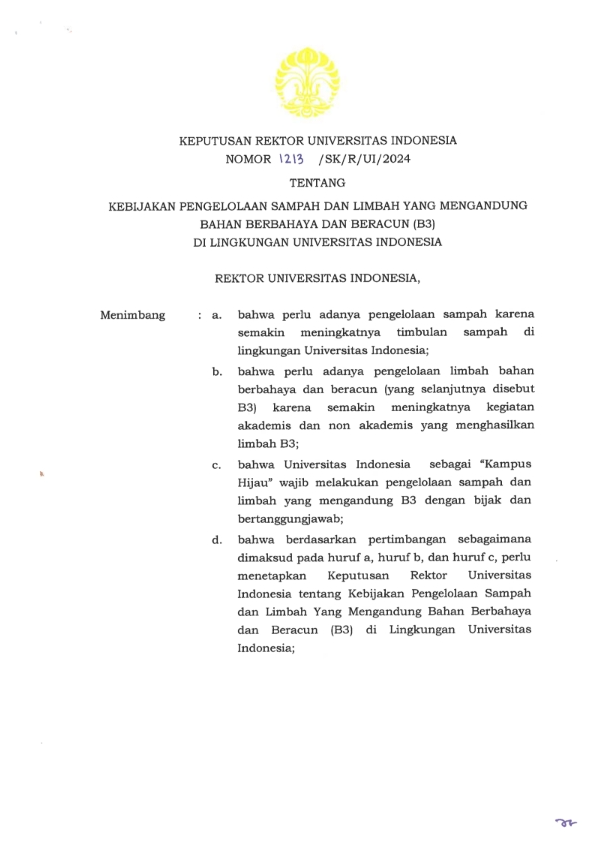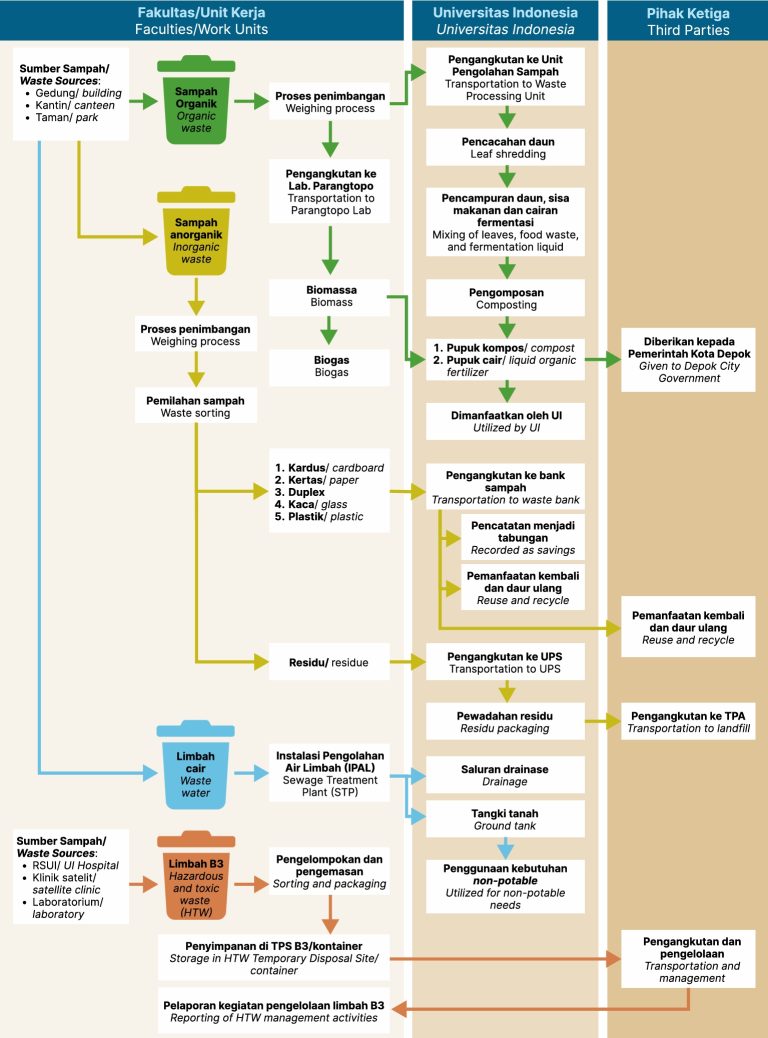
Ensure sustainable consumption and production patterns
Procurement at Universitas Indonesia upholds the principles of transparency, accountability, efficiency, and sustainability. All procurement activities follow Universitas Indonesia’s Rector’s Regulation No. 4 of 2022 and align with national legal frameworks, including Presidential, Government, and LKPP (National Public Procurement Agency) regulations. Through this policy, UI commits to implementing sustainable procurement practices that ensure institutional needs are met while supporting sustainable development goals via environmentally friendly, socially responsible, and well-governed procurement processes.
Policy on Hazardous Waste Management
Universitas Indonesia has established a formal policy on hazardous waste management through the UI Rectoral Decree No. 1213 of 2024 concerning the Policy on the Management of Waste and Waste Containing Hazardous and Toxic Materials (B3) within Universitas Indonesia. This policy explicitly mandates the management of B3 waste generated from both academic and non-academic activities. This Rectoral Regulation was stipulated on July 22, 2024. This decree officially revokes the previous UI Rectoral Decree (No. 1305 of 2011), confirming a significant policy update in 2024.
Policy on Waste Measurement for Recycling and Landfill
Universitas Indonesia maintains a formal waste disposal policy that requires the systematic measurement of waste sent to landfill and the amount recycled, making quantitative tracking an institutional obligation. This commitment is embedded in the Universitas Indonesia Green Campus Policy established by Rector’s Decree No. 2893/SK/R/UI/2018, which frames waste reduction and resource recovery as core elements of campus sustainability and aligns campus practice with sustainable development.
The Green Campus Policy was reviewed and strengthened in 2024 through Rector’s Decree No. 438 of 2024 on Universitas Indonesia Green Sustainable Campus Policy, as well as subsequent decrees on waste management that explicitly mandates quantitative waste tracking across campus operations. The strengthened policy ensures that landfill diversion and recycling rates are routinely measured, recorded, and reported, and it positions measurement as the basis for target‑setting and performance assessment. Operationally, the policy is translated into procedures for waste segregation, data collection at building and facility levels, centralized reporting by the Directorate for Facilities and Sustainability, and periodic audits to verify landfill and recycling figures. These processes enable the university to calculate landfill diversion, monitor trends in waste generation, and identify opportunities to increase recycling and reduce residual waste through procurement, behavior change campaigns, and infrastructure improvements.
By codifying measurement and reporting, Universitas Indonesia links strategic sustainable development commitments to everyday operations, ensuring that waste management is data‑driven, transparent, and accountable.

